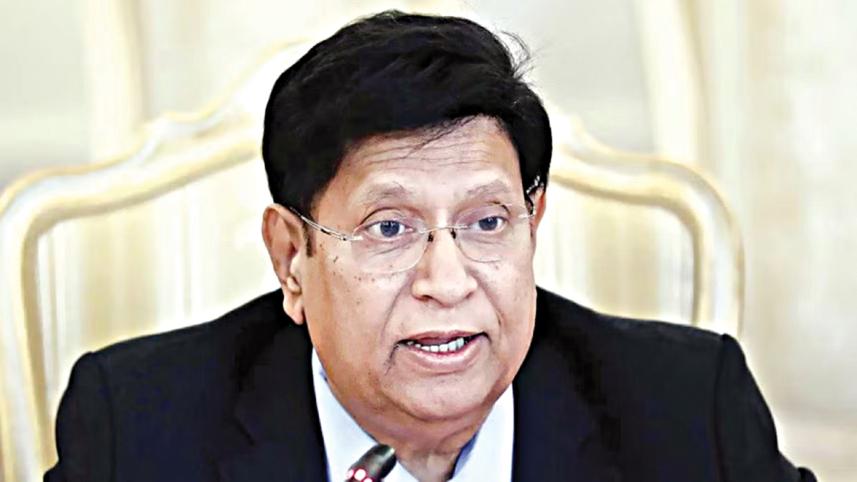Dhaka stands firm on Rohingya repatriation: Momen

Six years after the Rohingya influx in Bangladesh, the government continues its efforts to ensure their safe repatriation, though some countries and international organisations are pushing for their integration into Bangladesh.
"Our priority is that they [Rohingyas] will return to their homeland. Myanmar is also willing to take them back," said Foreign Minister AK Abdul Momen, noting that Myanmar needs to ensure safety and security of the Rohingyas after their return to their place of origin.
On August 25, 2017, Myanmar's military began carrying out violent operations against the Rohingya population in northern Rakhine state, which resulted in grave crimes under international law. Entire villages were burnt, and hundreds of thousands of Rohingyas were forced to flee into Bangladesh.
The foreign minister said the government stands firm on their repatriation to Myanmar.
"So, discussion is underway. We are always hopeful," he said, adding that some countries and international organisations recommended the Bangladesh government give Rohingyas training, improve their skills, and keep them here.
Momen said Bangladesh already has a huge population and it does not need a large number of people from other countries.
The minister said Rohingyas came to Bangladesh in the 1970s, '80s and '90s but every time they returned, even during military rule in the past.
UNHCR, the UN refugee agency, has called for renewed commitment from the international community for financial support to sustain the humanitarian response and political support to find solutions for over 1.1 million Rohingyas in Bangladesh.
This week marks six years since over 700,000 Rohingya men, women and children from Myanmar fled to Bangladesh.
They joined hundreds of thousands of other Rohingyas who had previously sought refuge in the country.
As the humanitarian condition in the world's largest refugee settlement worsens, the challenges surrounding this protracted crisis continue to increase.
Steep decline in funds is forcing humanitarian actors to focus on the most critical and life-saving needs, UNHCR said today.
It has for the first time led to the reduction of refugees' food assistance, raising concerns about cascading dramatic consequences: rising malnutrition, school dropout, child marriage, child labour and gender-based violence.
With their strength and resilience, the Rohingya refugees have, over the past six years, formed the backbone of the humanitarian response and supported the communities hosting them in turn.
UNHCR urged support to enable Rohingya refugees to benefit from education and skills development, through vocational training and other forms of capacity-building.
This will not only equip the refugees for their eventual return but also ensure their dignity, safety and productivity during their time in Bangladesh.
This can empower them to address some of their own needs, as the refugees do not wish to be totally reliant on diminishing humanitarian aid, said the UN refugee agency today.



 For all latest news, follow The Daily Star's Google News channel.
For all latest news, follow The Daily Star's Google News channel.
Comments